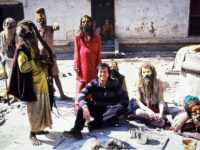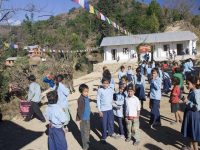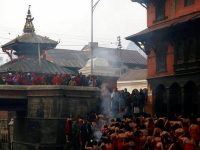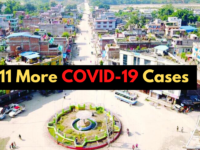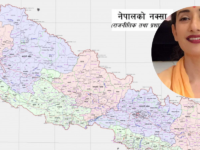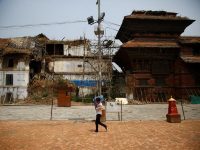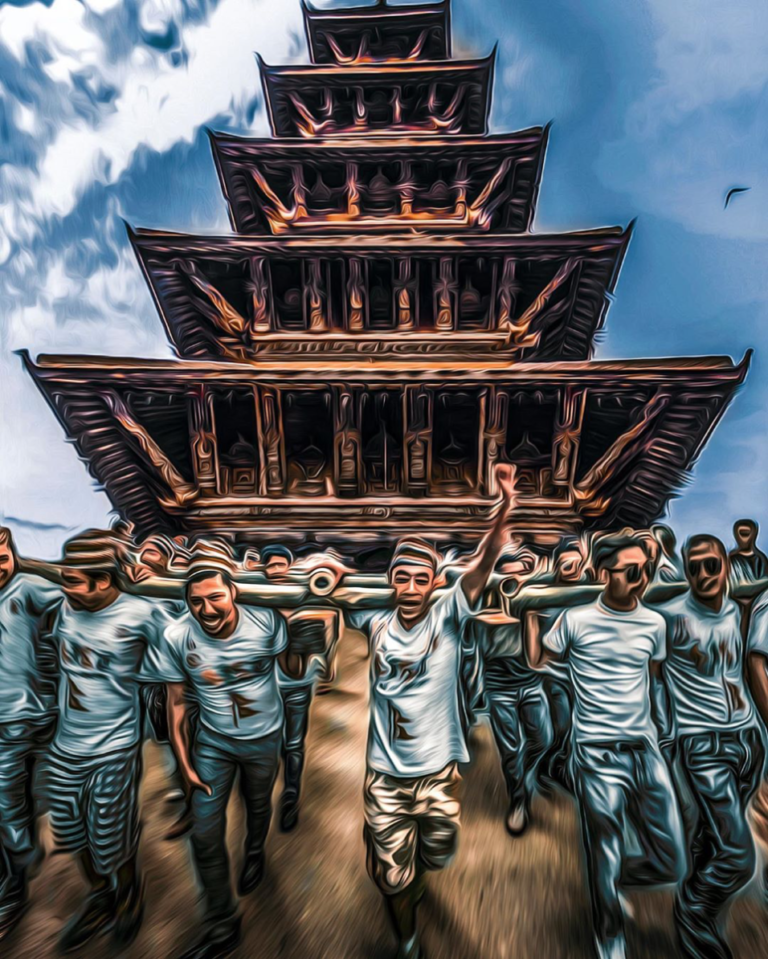By Om Tat Sat,
When Prithivi Narayan Shah conquered Kathmandu valley in BS 1826, he won the hearts of the defeated Newars by respecting their culture and not interfering with the Guthi system. The Gorkha kings subsequently were able to assimilate and unify the diverse kingdom, while making Kathmandu valley the capital of their unification drive. They were very smart.
Same cannot be said of the new conquerors of the valley. From destroying the homes in the name of widening the roads to launching an attack on the centuries old traditional pillars of the society, the government have shown their true color by their attempt to nullify the Guthi culture. While the government has backed down, it is apparent they are just looking for next opportunity.
If there is no Guthi, evidently there will be no Newari culture in Kathmandu. From the time of the Lichavis, Guthi has been a prominent feature of social fabric, a cooperative effort to help people prosper while the religious events were honored and celebrated by collective funding source, independent Guthis. Guthi culture has been called the most powerful social organization of the Newar community from the medieval ages; although social and political changes over the ages have chipped away its clout. However, thanks to the so called attempt to wipe out “feudalists,” the Newar community and others all across Nepal, people have found a new raison d’etre to fight for their identity and culture.
Obviously, it was a clear sign that this Guthi bill has been a concerted effort to wipe Nepal’s native culture and possibly Nepal’s age old identity. This was not the first attempt to kill the tradition. Another government during monarchy had brought the same bill 18 years ago, and the new one have just revived the same objectionable provisions in their bill, even proclaiming it as remnants of feudal past that needs to be terminated.
When we view it in the larger perspective, the event falls neatly into the effort of colonial and Western interests that has redesigned the Indian subcontinent since the 19th century British colonial policy. The best policy they developed to rule over millions of Indians was to wipe out their identity and culture. They first destroyed the ancient Vedic texts by maliciously demeaning their content and misinterpreting to prove they were savages. The other master stroke they employed was by killing the traditional Gurukul system of Sanskrit based free community-oriented education, which ensured social mobility and very high literacy rate, close to full literary in the subcontinent. The 1835 Indian Education Act banned the Sanskrit based Gurukul and Muslim madrasas, and imposed English education, thus making sure that some elites would favor the British rule and behave like them, while the rest of the masses would attempt to emulate their White colonial masters. Even after seven decades of colonial departure, the socio-economic and prestige associated with English language and education still pervades Indian culture.
Such an onslaught on the Vedic culture of India has kept Indians still living in an inferiority complex, despite their political independence. Scholars such as Raj Vedam and Rajiv Malhotra are making immense effort to restore the glory of Vedic culture and challenge the distortion of Indian history perpetuated by the British, but still prominently taught in Indian schools. Unfortunately, Nepal’s politicians do not seem to be aware of this history and the same play book being enacted in Nepal. It seems, only thing that matters to them is the material reality of the universe, hence they have demonstrated amply their willingness to be tools of their materialistic masters.
Let this move against the Guthi culture in conjunction with other autocratic policies put forth by the elected officials be a clear sign that Nepal is definitely on the wrong track. However, the people are awakened now.
The writer is a graduate of Arizona State University in Political Science. He is working as a social activist and motivational speaker for students across Nepal since 2007.
The views and opinions expressed in this article are those of the author and do not necesarily reflect the official policy or position of Nepalisite.







